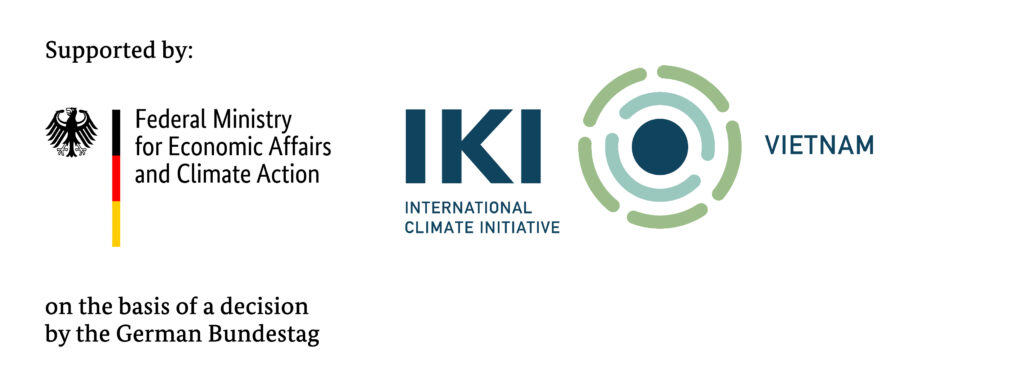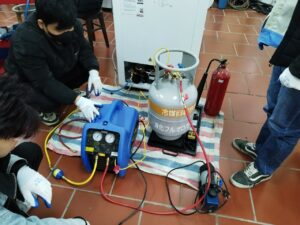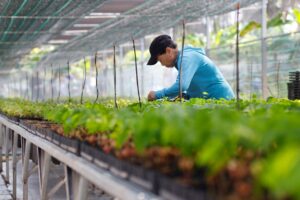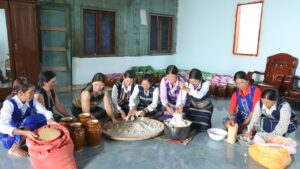Following the approval from Ministry of Agriculture and Rural development (MARD) on scaling Agro-climatic Bulletins (ACBs) in Mekong River Delta (MRD), the Vietnam government has issued several decisions and official letters and organised technical trainings as well as consultation meetings to all MRD provinces to ensure high level of technical transfer and ACBs adoption in the MRD region in 2023, 2024 and beyond.
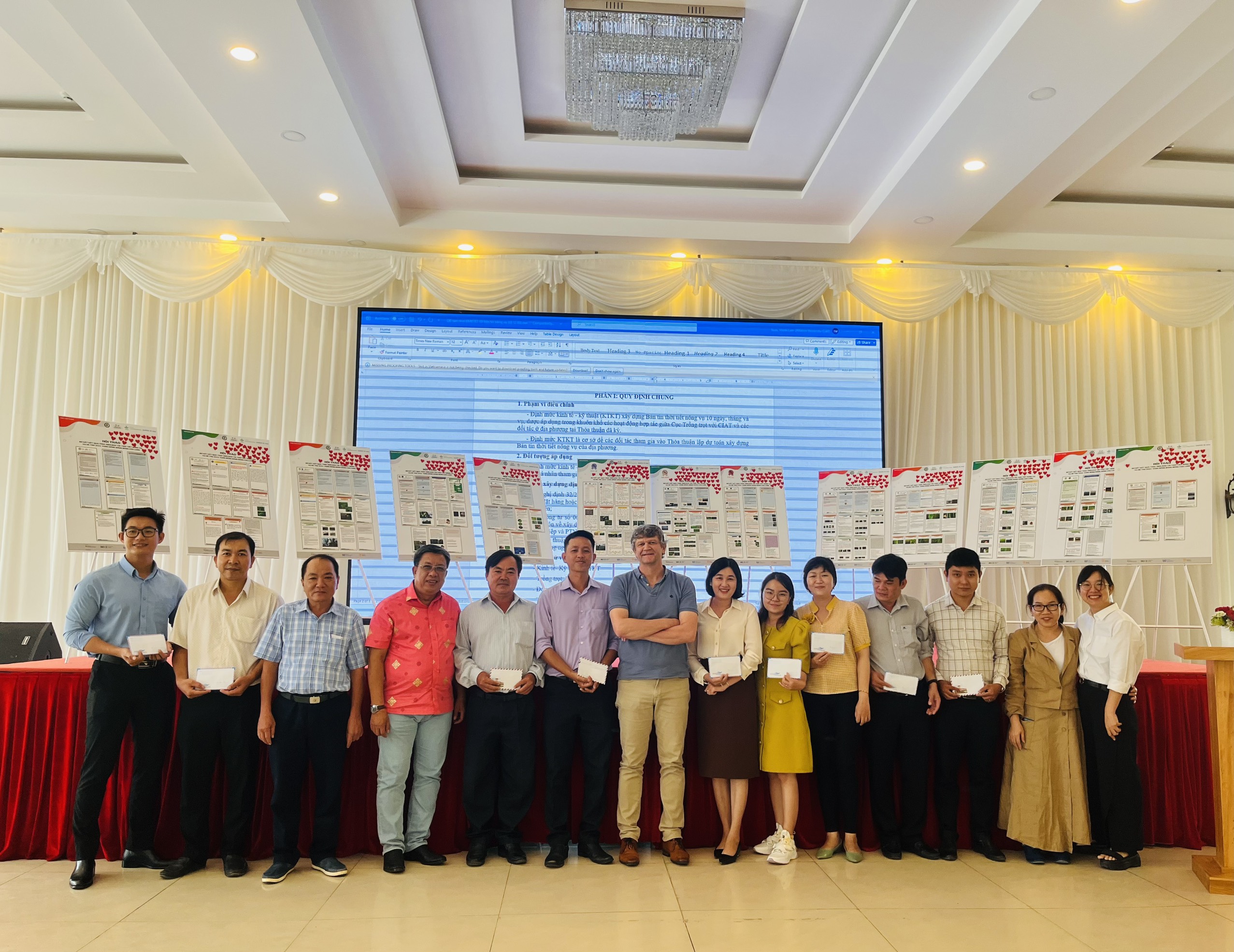
The Agro-climatic Bulletin (ACBs) approach was initiated and piloted in the MRD by DeRISK SE Asia since 2020. In 2022, it was aligned and further improved in the context of Asian Mega Deltas by the Alliance of Bioversity international and CIAT in collaboration with Department of Crop Production (DCP) of MARD. The bulletins provide recommendations based on seasonal, monthly and 10-days climate and weather forecasts and are co-developed by representatives of agricultural, extensions, hydrometeorological and irrigation staff considering farmers’ feedback.
Mrs. Tran Thi My Hanh from the DCP emphasized, “Providing weather forecasts and agricultural recommendations not only helps farmers decide when and how to cultivate but also reduces the number of spraying sessions, minimizes fertilizer usage, and mitigates damage caused by adverse weather conditions and pests.”
Capacity building for scaling out ACBs
From July to October 2023, two Training of Trainer (TOT) workshops were organized to support provincial partners in making work plans and develop ACBs. Knowledge and experience sharing between previous and newly implemented provinces strengthened partners’ knowledge and trust on the feasibility of the approach. After the trainings, all MRD provinces developed work plans and established technical working groups (TWGs) to implement ACBs for the rice Winter-Spring season of 2023-2024.
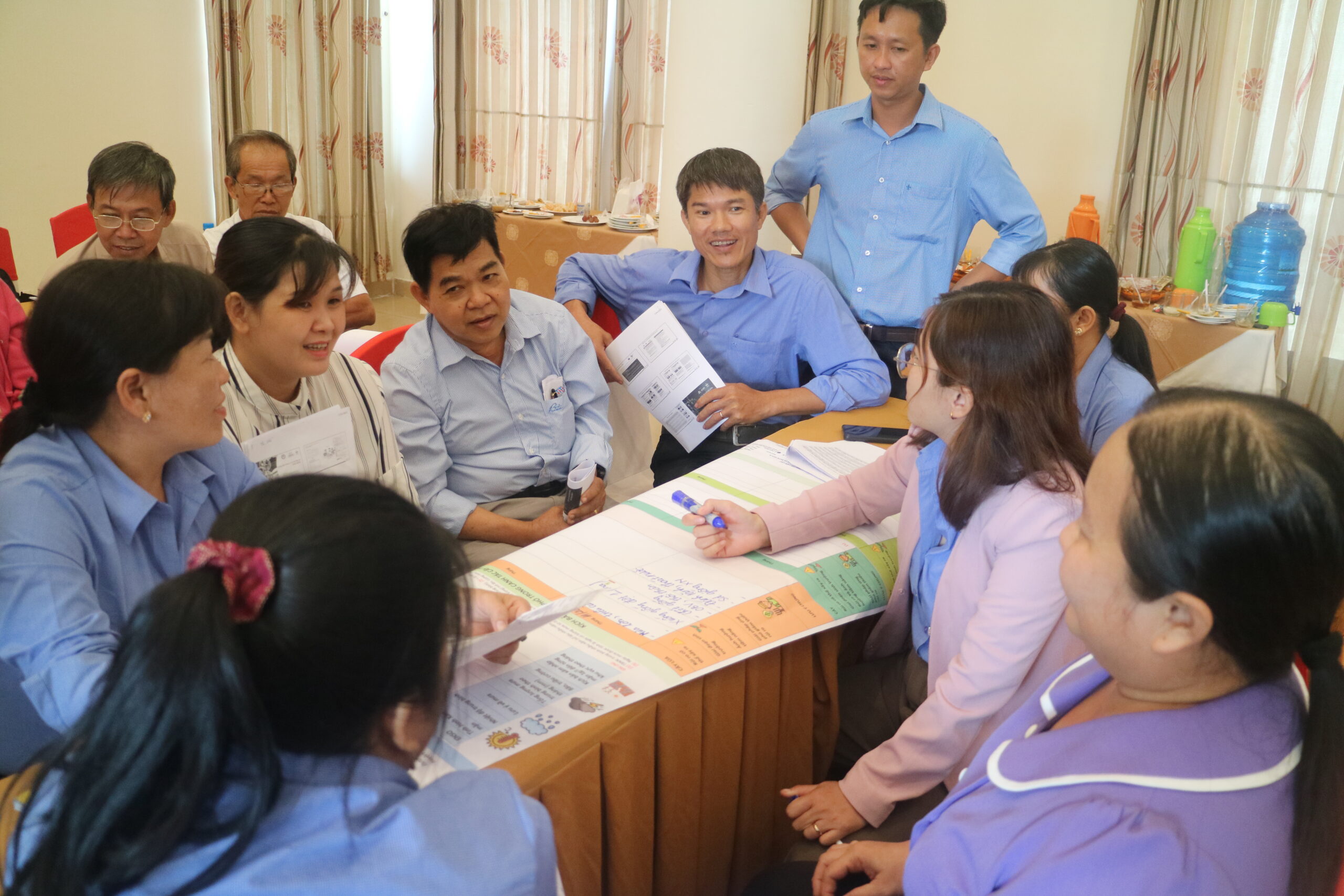
Policy implementation and wider reach of ACBs in the MRD.
Following MARD decision on the acknowledgement of ACB as a technical advance and scaling of ACBs in the MRD, the DCP established an official technical working group (TWG) at MRD regional level, and issued a directive letter for implementation of ACBs in all 13 provinces with concrete work plans for 2024. In preparation of that, a consultation meeting and a review workshop with 13 provinces in MRD were successfully conducted to discuss and share experiences on what, how, where and when to implement ACBs.
The ACB started in one province in 2021, expanded to 7 provinces in 2022 and is now in being scaled to all 13 provinces in the MRD. We are currently involving 52 districts and 521 communes and reaching more than 200,000 people through Zalo groups and other channels.
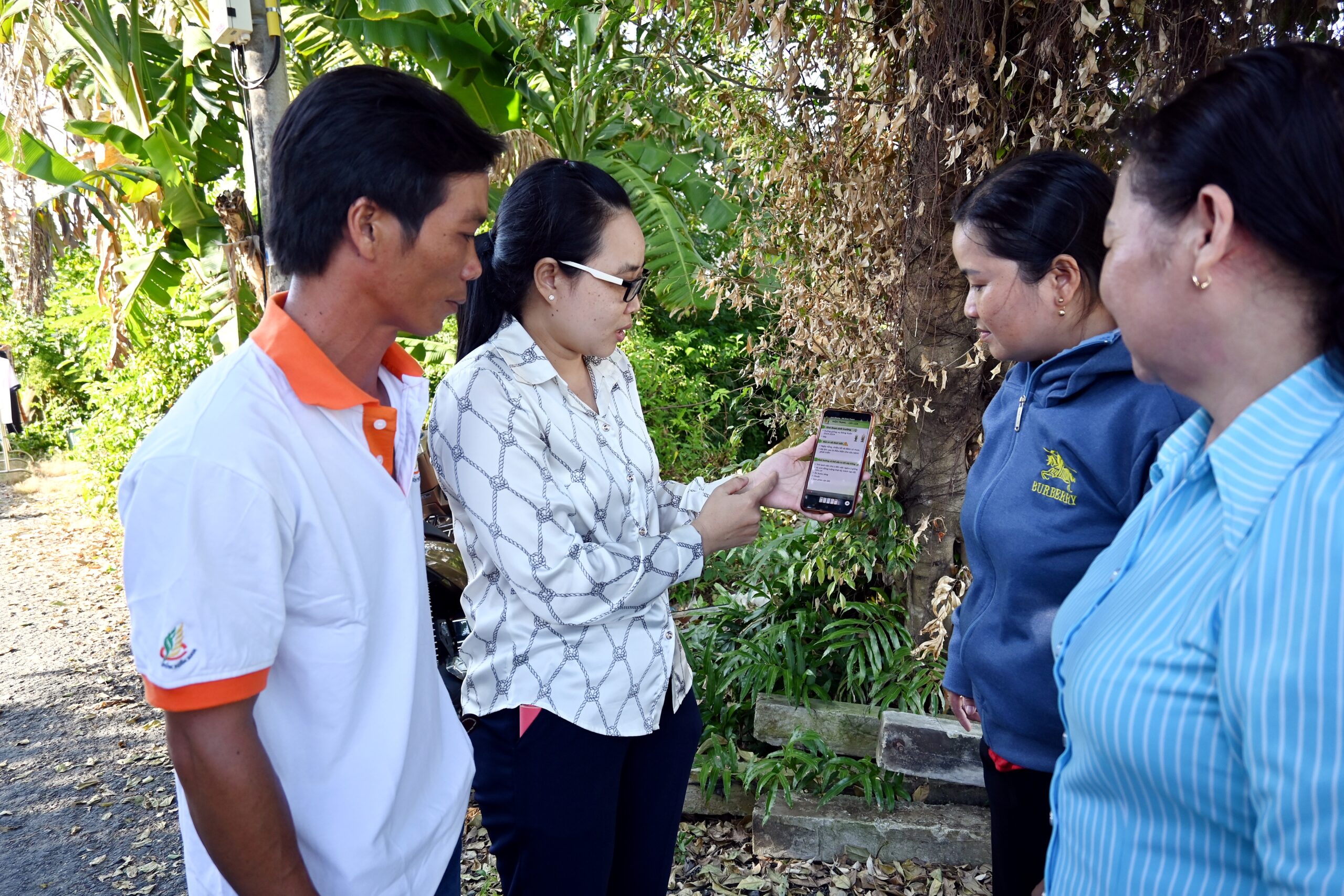
Towards a digital approach
DCP received an additional 400 million VND from MARD to continue implementation and improve ACBs, contributing to state management on crop production and sustainable agricultural development. Mr. Le Thanh Tung, Deputy Director of the DCP shared that to improve the quality and support the scaling of the bulletins further, we need to explore opportunities for ACBs digitalization to optimize the bulletin development and dissemination process, saving time and resources, and ensuring consistent quality.
Dr. Kees Swaans from the Alliance of Bioversity International and CIAT, stated “We aim to promote two-way interaction with farmers through digital platforms and to disseminate advisory on low emission, nutrition-sensitive, and conservation agriculture practices to farmers through the program. With support and cooperation from relevant parties, the Agro-climatic Bulletins will bring practical benefits and contribute to the sustainable agricultural development in the delta.”
About the projects:
DeRISK SE Asia project is titled “Applying seasonal climate forecasting and innovative insurance solutions to climate risk management in the agriculture sector in South East Asia”. The project is led by the World Meteorological Organization (WMO) and implemented by the University of Southern Queensland (USQ) and the Alliance of Bioversity International and CIAT, with funding support from the International Climate Initiative (IKI), (https://deriskseasia.org).
The CGIAR Initiative on Asian Mega-Deltas aims to create resilient, inclusive and productive deltas that maintain socio-ecological integrity, adapt to climatic and other stressors and support human prosperity and wellbeing (Asian Mega-Deltas – CGIAR). The work package 3 (WP3) on De-risking delta-oriented value chains under the AMD aims to reduce climate risks among smallholder farmers and facilitate investment in deltaic value chains through digital climate advisory and complementary services (DCAS+).
